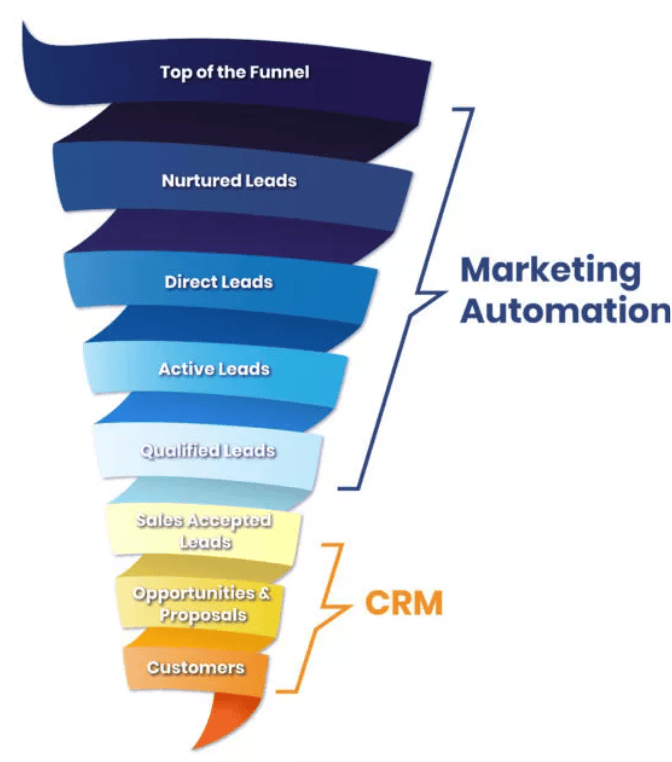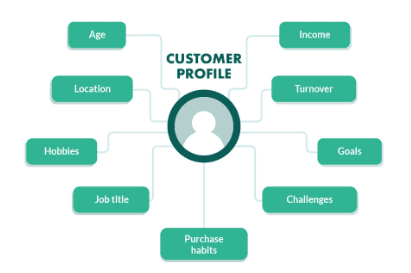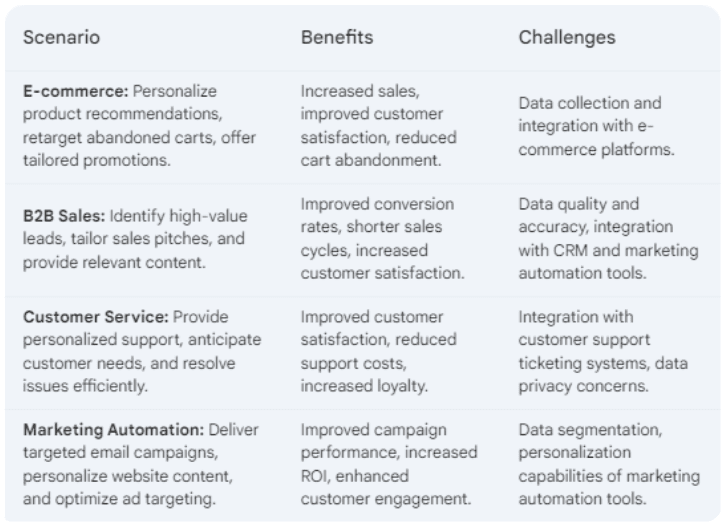Customer data profiling is the process of collecting and analyzing information about your customers to create detailed profiles that inform your marketing and sales strategies. By automating data collection and analysis, you can gain valuable insights into your customers' needs, preferences, and behaviors, enabling you to deliver highly personalized experiences that drive engagement and conversions.

Benefits of Customer Data Profiling
- Improved Customer Engagement: Personalized experiences make customers feel valued and understood, leading to increased engagement and loyalty.
- Targeted Marketing Campaigns: Tailor marketing messages and offers to specific customer segments, improving campaign effectiveness and ROI.
- Enhanced Sales Efficiency: Identify high-value leads and prioritize sales efforts accordingly, optimizing your sales team's time.
- Better Customer Service: Provide more relevant and helpful support by understanding your customers' individual needs.
- Data-Driven Decision Making: Make informed decisions based on data-driven insights about your customers.

CRM Automations for Customer Data Profiling
- Lead Scoring: Assign a numerical score to leads based on their attributes and behaviors to prioritize follow-up efforts.
- Progressive Profiling: Gather additional information about leads as they interact with your website or marketing materials.
- Customer Segmentation: Group customers based on shared characteristics to deliver targeted messaging and offers.
- Behavior Tracking: Monitor customer behavior, such as website visits, email opens, and product purchases, to gain insights into their preferences.
- Data Enrichment: Supplement existing customer data with information from third-party sources to create more complete profiles.
Key Data Points to Collect
- Demographics: Age, gender, location, occupation, income level
- Psychographics: Interests, hobbies, lifestyle, values
- Firmographics: Company size, industry, revenue, location
- Digital Footprint: Website visits, social media activity, email engagement
- Purchase History: Product purchases, order value, purchase frequency
- Customer Support Interactions: Ticket volume, resolution time, satisfaction ratings
CRM Automations for Data Profiling
- Lead Scoring: Assign a numerical score to leads based on their attributes and behaviors to prioritize follow-up efforts.
- Progressive Profiling: Gather additional information about leads as they interact with your website or marketing materials.
- Customer Segmentation: Group customers based on shared characteristics to deliver targeted messaging and offers.
- Behavior Tracking: Monitor customer behavior, such as website visits, email opens, and product purchases, to gain insights into their preferences.
- Data Enrichment: Supplement existing customer data with information from third-party sources to create more complete profiles.
Implementing CRM Automations for Data Profiling
- Choose a Suitable CRM: Select a CRM platform with robust automation capabilities and data analysis tools.
- Define Data Fields: Identify the key data points you want to collect for customer profiles.
- Set Up Automation Rules: Create rules to trigger data collection and analysis based on specific events (e.g., website visits, form submissions).
- Integrate with Other Systems: Connect your CRM to other systems (e.g., marketing automation, email marketing) to gather additional data.
- Data Cleansing and Standardization: Ensure data quality by cleaning and standardizing data before analysis.
- Analyze and Segment Data: Use data analysis tools to identify patterns and segment customers based on their profiles.
- Personalize Marketing and Sales Efforts: Tailor marketing messages, offers, and sales approaches based on customer segments.

Best Practices for Customer Data Profiling
- Obtain Customer Consent: Ensure you have explicit customer consent to collect and use their data.
- Data Privacy and Security: Implement robust data security measures to protect customer information.
- Continuous Improvement: Regularly review and update your data profiling processes to ensure accuracy and relevance.
- Ethical Considerations: Use customer data ethically and responsibly, avoiding discriminatory practices.
CRM Automations & Data Governance Aspects
- Data Quality: Ensure data accuracy and completeness for reliable insights.
- Data Privacy and Security: Comply with data privacy regulations and protect customer information.
- Integration: Integrate your CRM with other systems to gather comprehensive data.
- Ethical Considerations: Use customer data ethically and responsibly, avoiding discriminatory practices.
- Continuous Improvement: Regularly review and update your data profiling processes to ensure accuracy and relevance.
By effectively implementing CRM automations for customer data profiling, you can gain a deeper understanding of your customers, personalize your marketing efforts, and drive business growth.

